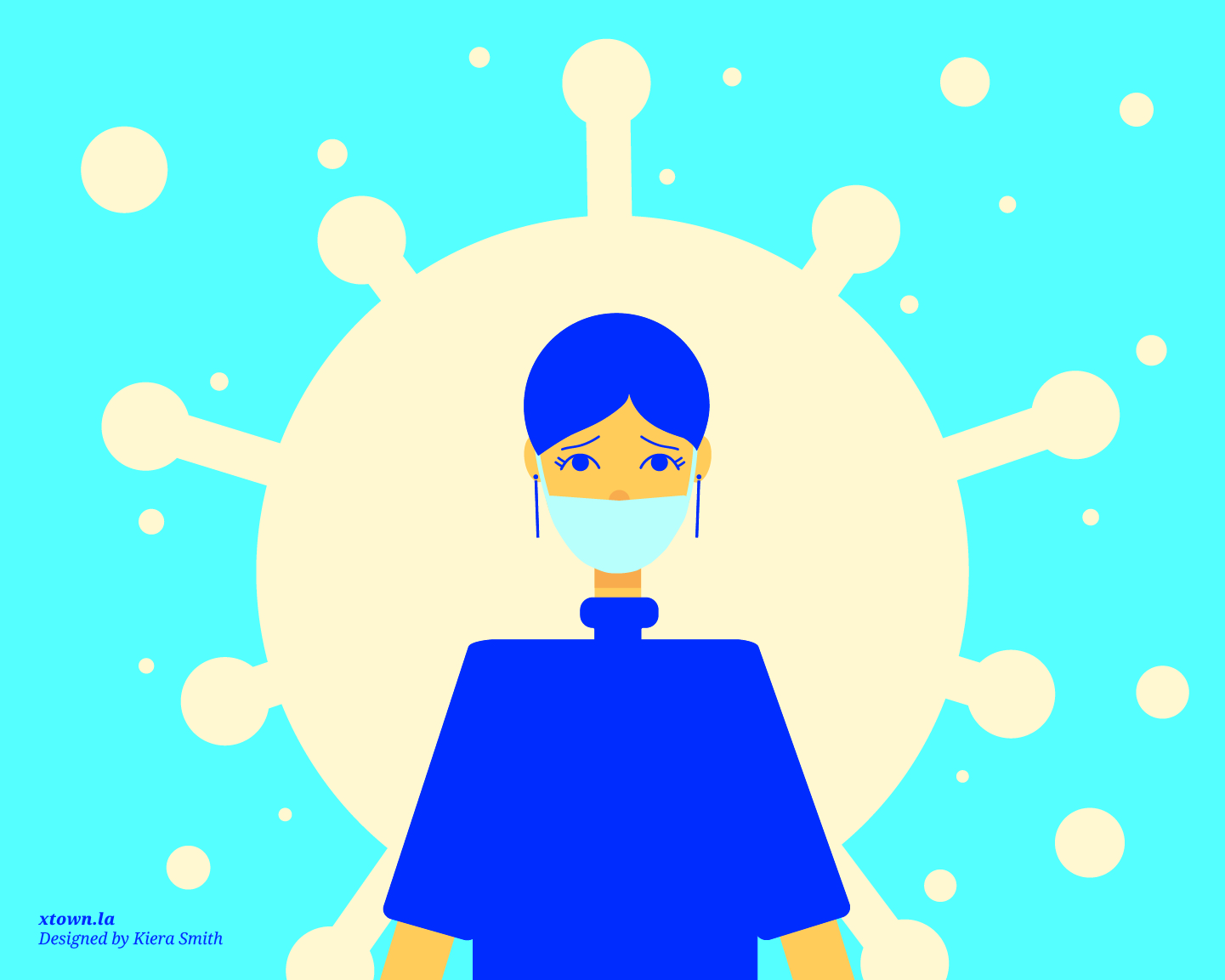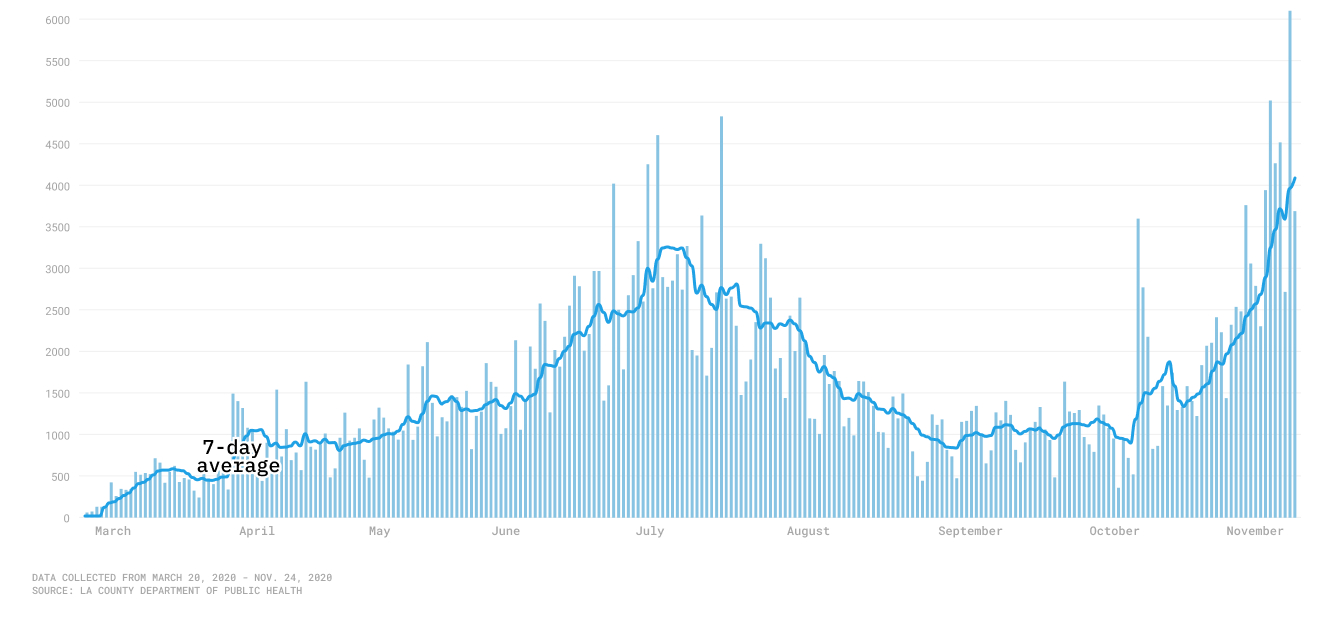Why this COVID-19 spike is different

The seven-day average of COVID-19 cases in Los Angeles County reached its highest point in the eight months of the pandemic on Tuesday when it hit 4,076 cases. That marks a spike of 25% over the previous apex of 3,260 recorded on July 18.
The situation has led to a dire warning from County Public Health Director Dr. Barbara Ferrer.
“The increases we are seeing now are a result of the actions we took two weeks ago,” Ferrer said in the department’s Nov. 20 COVID-19 update. “The time to act is now, so in two to three weeks, we will not continue to experience even higher case counts, more people dying from COVID-19, and our health care system seriously stressed.”
Understanding why the current surge is so worrisome requires examining how it compares to the virus’s spring arrival and summer spike.
Daily COVID-19 cases and 7-day average for Los Angeles County

When COVID-19 began spreading across Los Angeles in March, Mayor Eric Garcetti and other local leaders instituted the Safer at Home initiative. Infection numbers subsequently dipped, and as the threat to the healthcare system appeared to diminish, elected and health officials in May allowed the economy to partially reopen.
By early June, many businesses had returned. That activity, combined with Memorial Day gatherings and large crowds congregating for racial justice protests after the killing of George Floyd, preceded a sharp uptick in cases. Additional gatherings for the 4th of July also may have played a part, and the highest seven-day average for COVID-19 fell on July 18.
On July 20, the county hit its hospitalization peak, with 2,232 people being treated and 26% of them in the ICU. The figure would remain over 2,000 for most of the rest of the month.
After that, however, the number of new cases fell dramatically. By mid-September, fewer than 800 people were in local hospitals.
Holidays, gatherings cause numbers to jump
The most recent surge appears to have followed a similar pattern as the summer spike, growing after events or holidays that bring people together. Most notably, COVID-19 cases increased by 80.9% in the 14-day period after Halloween. This followed a 42.2% rise in cases in the two weeks after the Lakers won the NBA championship on Oct. 11.
Two other factors may be contributing to the current spike. Colder weather is bringing more people indoors, where the risk for transmission is increased. In addition, September and October saw the reopening of many businesses.
On Nov. 24, 1,575 people in L.A. County were hospitalized with COVID-19, according to the Public Health Department. While that is much lower than the summer peak, hospitalizations are a lagging indicator, and a rise in cases one day can be seen in hospitals two or more weeks later.
Hospital beds filling up
The number of hospitalizations has already increased by 77.4% since Nov. 10, when the daily number of people hospitalized with COVID-19 was 888.
The surge in new cases, thus, sparks concerns that hospitals could see even more patients than during the summer. That is partly why on Friday multiple safeguards went into effect, including limitations on store occupancies and business hours.
But the numbers keep rising. On Nov. 19, the Department of Public Health reported 5,031 new infections, the highest single-day figure not associated with backlog cases since the onset of the pandemic. That eclipsed the previous non-backlog influenced high of 4,592 cases, recorded on July 16.
With Thanksgiving, and the winter holidays weeks later, local authorities are urging residents to resist the urge to gather.
“This is game day. This is the moment,” Garcetti said on Nov. 16.
How we did it: We examined the daily reports of new infections compiled by the Los Angeles County Department of Public Health to derive the seven-day average.
Have questions about our data or want to know more? Write to us at askus@xtown.la.






